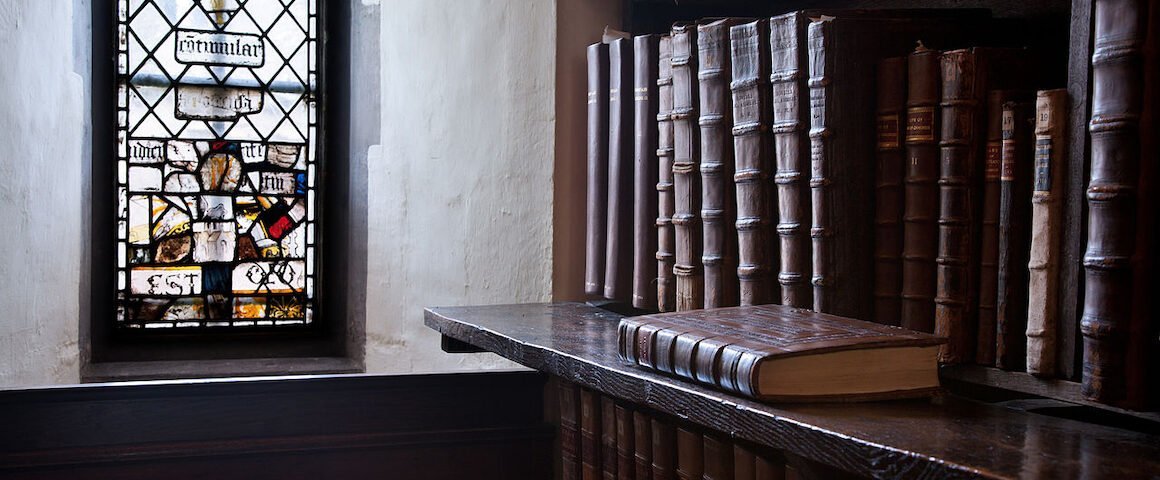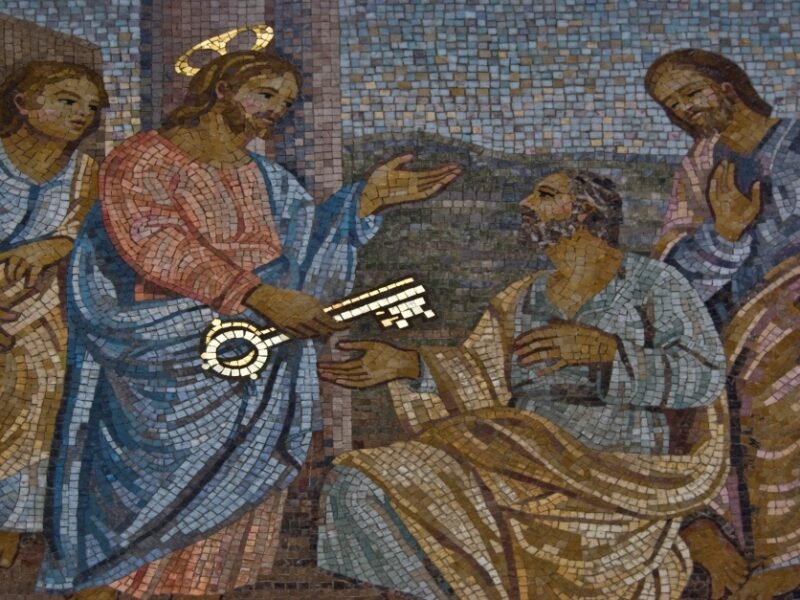It is widely recognized that the term “sacrament” has historically been a flexible one, even after the early church adopted it from the broader milieu of Roman culture into a specifically Christian context: “The commoner use of the word is either for a sacred rite in general, an outward sign of some more hidden reality—or else for certain particular, more exalted rites of the Gospel and the Church. It has, in short, a more extended, and a more restricted force. In its more extended sense, it signified little more than a religious ordinance or a sacred sign.”[1] On this broader understanding, as Bishop Jewel remarks, there should be “not seven, but seventeen Sacraments.”[2] In its narrowest and most proper sense, the word “sacrament” is applied only to “the two great ordinances of the Gospel [that is, Baptism and the Eucharist], instituted by Christ Himself.”[3] As Browne subsequently observes, however, “This definition does not exclude matrimony, confirmation, absolution, and orders, from being in some sense Sacraments; but it excludes them from being ‘such Sacraments as baptism and the Communion.’”[4]
It should be uncontroversial to say that the four rites named above “the Church of England admits, at least in a modified form.”[5] (The fifth, anointing of the sick, will be discussed in a later commentary.) But even where this is granted, some contend they should not be termed sacraments in any sense:
What then? Do we refuse Confirmation, Penance, Orders, and Matrimony? Is there no use of these among us? do we not allow them? Yes. For we do Confirm and teach repentance, and minister holy Orders, and account Matrimony, and so use it, as an honourable state of life. We visit the sick among us, and anoint them with the precious oil of the mercy of God. But we call not these Sacraments, because they have not the like institution. Confirmation was not ordained by Christ: Penance hath not any outward element joined to the word: the same may be said of Orders: and Matrimony was not first instituted by Christ; for God ordained it in Paradise long before.[6]
To elaborate this rationale further, “The danger of confusing ideas in the popular mind by using the same name for religious ceremonies of different origin and degrees of obligation is obvious. For this reason our Church has avoided giving the name of sacrament to any ordinance excepting the two instituted by Christ.”[7] While this is a fair argument for not referring to the five as “sacraments” without qualification, the use of modifiers should make the distinction clear. Different authors have proffered various possibilities—one refers to Baptism and the Eucharist as “Dominical” sacraments and the other five as “minor” or “lesser” sacraments;[8] another calls the two “Sacraments of the Gospel” and the five “sacramentals”;[9] meanwhile, the catechism of the Anglican Church in North America teaches that the two are “sometimes called ‘sacraments of the Gospel,’” whereas the five are “sometimes called ‘sacraments of the Church.’”[10] Whatever language is used, one can easily convey that the five are not to be accorded equal nature and status with the two without going so far as to withhold from them the name “sacrament.”[11]
Notes
- See also Thomas Waite, Sermons, Explanatory and Practical, on the Thirty-Nine Articles (London: Baldwin, Cradock, and Joy, 1826), 361; John Jewel, Two Treatises on the Holy Scriptures and on the Sacraments (Oxford: John Henry Parker, 1840), 117‒18; Gilbert Burnet, An Exposition of the Thirty-Nine Articles, ed. James R. Page (New York: D. Appleton & Company, 1842), 351; Edward Welchman, The Thirty-Nine Articles of the Church of England (London: SPCK, 1842), 60; A. P. Forbes, An Explanation of the Thirty-Nine Articles, 2nd ed. (Oxford and London: James Parker and Co., 1871), 449, 452; T. P. Boultbee, An Exposition of the Thirty-Nine Articles (London: Longmans, Green, and Co., 1871), 209, 211; Robert Louis Cloquet, An Exposition of the Thirty-Nine Articles (London: James Nisbet & Co., 1885), 507‒508; John Macbeth, Notes on the Thirty-Nine Articles (London: Simpkin, Marshall, & Co., 1894), 133, 136; G. F. Maclear and W. W. Williams, An Introduction to the Articles of the Church of England (London: Macmillan and Co., 1895), 298, 303; Edgar C. S. Gibson, The Thirty-Nine Articles of the Church of England, 2nd ed. (London: Methuen and Co., 1898), 595‒98; B. J. Kidd, The Thirty-Nine Articles: Their History and Explanation (London: Rivington’s, 1899), 213; F. E. Middleton, Lambeth and Trent: A Brief Explanation of the Thirty-Nine Articles (London: Chas. J. Thynne, 1900), 146; Darwell Stone, Outlines of Christian Dogma, 3rd ed. (New York: Longmans, Green, and Co., 1903), 150; Arthur J. Tait, Lecture Outlines on the Thirty-Nine Articles (London: Elliot Stock, 1910), 173; E. Tyrrell Green, The Thirty-Nine Articles and the Age of the Reformation, 2nd ed. (London: Wells, Gardner, Darton & Co., 1912), 178; E. J. Bicknell, A Theological Introduction to the Thirty-Nine Articles of the Church of England, 2nd ed. (New York: Longmans, Green, and Co., 1925), 445; W. H. Griffith Thomas, The Principles of Theology: An Introduction to the Thirty-Nine Articles, 4th ed. (London: Church Book Room Press, 1951), 347, 351; Edward Arthur Litton, Introduction to Dogmatic Theology, ed. Philip E. Hughes (London: James Clarke and Co., 1960), 433‒34, 440; Richard Baxter, Confirmation and Restauration, in Anglicanism, ed. Paul Elmer More and Frank Leslie Cross (Cambridge: James Clarke & Co., 2008), 275. ↑
- Jewel, Two Treatises, 121. ↑
- See also Jewel, Two Treatises, 120‒22; Burnet, Exposition, 350; Thomas Rogers, The Catholic Doctrine of the Church of England, ed. J. J. S. Perowne (Cambridge: Cambridge University Press, 1854), 251; Forbes, Explanation, 452; Gibson, Thirty-Nine Articles, 599; Tait, Outlines, 177; Thomas, Principles, 351‒52; Litton, Introduction, 446; Joseph Hall, The Old Religion, in More and Cross, Anglicanism, 274; and Baxter, Confirmation and Restauration, 275. ↑
- See also William Beveridge, An Exposition of the Thirty-Nine Articles of the Church of England (London: James Duncan, 1830), 461; Forbes, Explanation, 449, 451; Maclear and Williams, Introduction, 304, 306; Gibson, Thirty-Nine Articles, 599‒600, 600n1; Kidd, Thirty-Nine Articles, 212‒14; Stone, Outlines, 153; Green, Thirty-Nine Articles, 186; Bicknell, Theological Introduction, 452; and Gerald McDermott, Deep Anglicanism, 2nd ed. (Nashotah, WI: Nashotah House Press, 2024), 175. ↑
- See also James Beaven, A Catechism on the Thirty-Nine Articles (Oxford and London: John Henry Praker, 1850), 77; Michael Allen, “Sacraments in the Reformed and Anglican Reformation,” in The Oxford Handbook of Sacramental Theology, ed. Hans Boersma and Matthew Levering (New York: Oxford University Press, 2015), 286‒87; Anglican Church in North America, To Be a Christian: An Anglican Catechism (Wheaton, IL: Crossway, 2020), Q. 125, 56; Francis J. Hall, Anglican Dogmatics: Francis J. Hall’s Dogmatic Theology, ed. John A. Porter, vol. 2, Bk. VIII, The Church & the Sacramental System (Nashotah, WI: Nashotah House Press, 2021), 403; and McDermott, Deep Anglicanism, 175. ↑
- Jewel, Two Treatises, 119‒20. See also Burnet, Exposition, 384; George Tomline, Elements of Christian Theology, 14th ed., vol. II (London: T. Cadell, 1843), 361; Boultbee, Exposition, 210; Macbeth, Notes, 137; and Thomas, Principles, 353. ↑
- Boultbee, Exposition, 210. ↑
- Louis R. Tarsitano, An Outline of an Anglican Life: Lessons in the Faith and Practice of the Anglican Church (Carillon Books, 1994), 36. The use of “dominical sacraments” can also be found in Greg Peters, “Spirituality,” in Re-formed Catholic Anglicanism, ed. Charles F. Camlin, Charles D. Erlandson, and Joshua L. Harper (Anglican Way Institute, 2024), 80. ↑
- McDermott, Deep Anglicanism, 175. ↑
- Anglican Church in North America, To Be a Christian, Q. 123‒24, 56. ↑
- For further reading on the subject, see Brandon LeTourneau, “Attempts in Reconciliation,” The North American Anglican, 14 November 2019, https://northamanglican.com/attempts-in-reconciliation/. ↑







'Numbering the Sacraments [Commentary on Browne: Article XXV (1)]' has no comments
Be the first to comment this post!